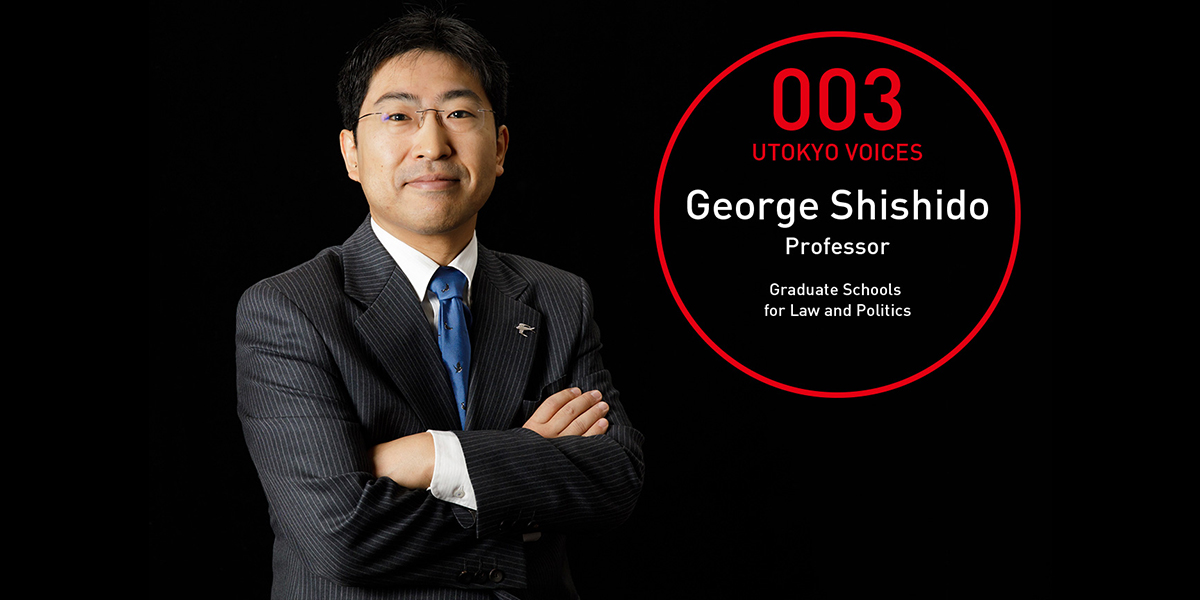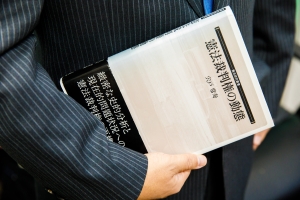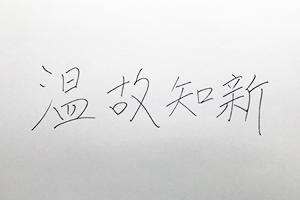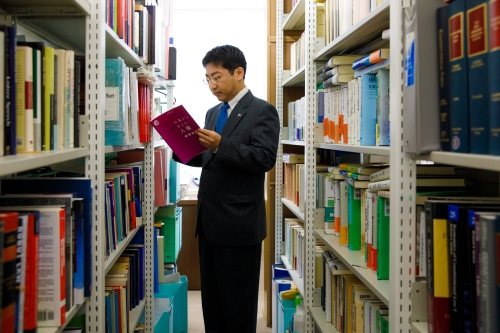Never Forget the Why: Focus on the Purpose, not the Means | UTOKYO VOICES 003


Never Forget the Why: Focus on the Purpose, not the Means
Technologies that weren’t even on the horizon ten years ago are now in our hands. World affairs change faster than the seasons. Japanese society is going through major transformations. In the face of so much change, calls to amend the Japanese Constitution and laws are increasing in volume. Shishido responds by asking instead, do they really need to change?
As a spirited constitutional scholar, Shishido’s opinion is sought after by government committees and political party workshops, and for public symposiums and other gatherings.
The debate on amending the Constitution is usually focused on two options: amending or protecting it. However, Shishido says that before getting into that discussion you first have to ask what your purpose is, i.e., what you hope to solve and what kind of society you want, and then ask whether amending the Constitution is an effective means of achieving that purpose.
“At committee meetings and workshops, I try to present material in a way that has the discussion start with the purpose rather than the means.”
He has been asked to committee meetings and industry group workshops not only on the subject of the Constitution but also on laws related to information. “The way I understand it, the Constitution is the infrastructure for running society democratically. For it to function well, there must be an environment where people are able to get information about what is happening politically from the media and express themselves freely, with public opinion being formed properly based on that. In other words, information legislation has a significant impact on the state of democracy, which the Constitution supports.”
In the information field, there are often proposals to create laws or relax restrictions whenever new technologies come out; but in this case as well, Shishido seeks to carefully get to the root of the issue so that the discussion on means does not come first. “Unless we turn our attention to what the existing laws have covered up until now, what new circumstances have actually arisen and where the existing laws are lacking in that regard, the discussion will end up being superficial.”
The root of the issue must be the purpose, and continually probing that purpose without getting wrapped up in discussions on means is mentally draining. There is also very little solid sense of making an impact on reality. People tend to get fired up about needing to do something, and the discussion falls into a simple pattern of binary opposition. Shishido says a researcher’s job includes eliminating those hindrances to discussion.
His basic approach is to ask “why” with respect to the given subject. Whether the subject is the Constitution or laws, he never lets things end with “because that’s the way it is.”
“A legal scholar’s job is not just to sort out what is legally acceptable and what is not. When industry leaders and researchers from other fields ask why a regulation exists, the underlying question should not be whether the regulation is necessary or not, but how society or customers can be made happy. I believe our role is to provide an explanation of why a law was established and why it has remained in place and then provide suggestions on how to approach it in order to achieve its purpose.”
Looking around at the piles of books that blanket his office, he asks, “And answering that ‘why’ also sharpens your own discipline, does it not?”


When he graduated from university, Shishido still could not decide whether to become a researcher or a lawyer. What put him on the path to continuing his work in research was the high acclaim for a thesis he wrote while an assistant. He later published the thesis in book form.


“The point is not to blindly keep or do away with the laws that our predecessors came up with through much rational discussion but to know the background and circumstances. I believe that will serve as the material for verifying the relationship between current social circumstances and the law.” [Text: Onkochishin (discover new truths by studying the past). From the Analects of Confucius.]

George Shishido
George Shishido entered the University of Tokyo in 1993 and joined the Faculty of Law. He passed the bar exam in 1995 while attending the university and became a research assistant with the Faculty of Law and Graduate Schools for Law and Politics of the University of Tokyo. After working as an assistant professor at Tokyo Metropolitan University and an associate professor at Hitotsubashi University, in 2010 he became an associate professor at the Faculty of Law and Graduate Schools for Law and Politics of the University of Tokyo. From 2012 to 2013 he was a visiting researcher at the University of California, Berkeley School of Law. Since 2013 he has been a professor at the Faculty of Law and Graduate Schools for Law and Politics of the University of Tokyo. He serves on many government and other public body committees as an expert on the Constitution and information law and is often invited to workshops held in the information and media industry.
Interview date: November 7, 2017
Interview/text: Eri Eguchi. Photos: Takuma Imamura.






